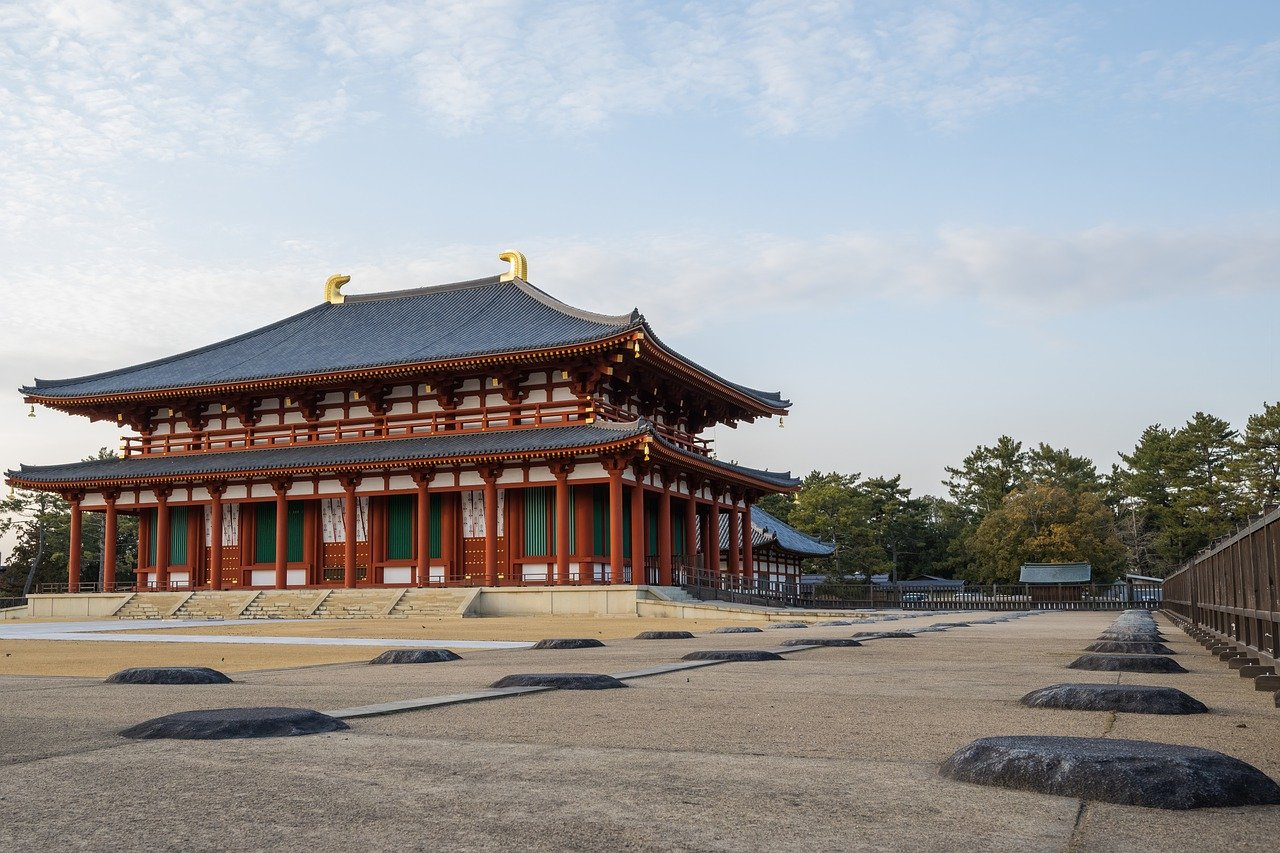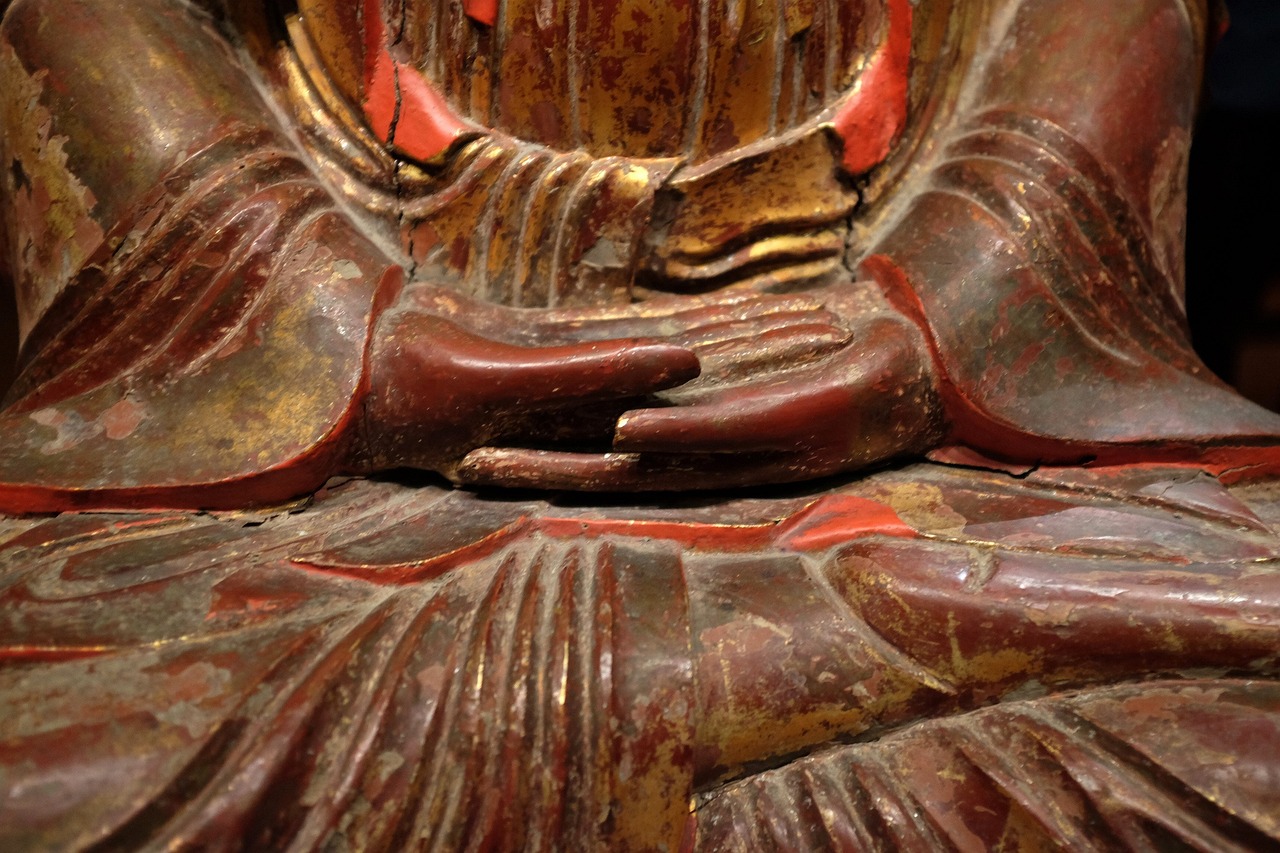The Influence of Ancient Eastern Philosophies on Modern Thought
Exploring how ancient Eastern philosophies such as Buddhism, Confucianism, and Taoism have significantly impacted modern thought is akin to unearthing hidden treasures that continue to shape our understanding of mindfulness, ethics, and personal development in today's world. These profound philosophies, rooted in centuries-old wisdom and cultural practices, have woven themselves into the fabric of contemporary life, leaving an indelible mark on various aspects of our society and culture.

Buddhism's Impact on Modern Mindfulness Practices
When delving into the realm of modern mindfulness practices, it is impossible to ignore the profound impact that Buddhism has had on shaping this contemporary phenomenon. The rich tapestry of Buddhist principles, rooted in centuries of wisdom and introspection, has woven its way into the fabric of mindfulness techniques prevalent in psychology, wellness, and stress management today.
At the core of Buddhism's influence on modern mindfulness lies the practice of meditation. This ancient tradition, honed by generations of Buddhist monks seeking enlightenment, has been embraced by individuals worldwide as a powerful tool for cultivating self-awareness and inner peace. Through mindfulness meditation, practitioners learn to observe their thoughts and emotions without judgment, fostering a deeper connection with the present moment.
Moreover, the emphasis on compassion in Buddhist teachings has played a pivotal role in shaping modern approaches to mindfulness. By nurturing a sense of empathy and kindness towards oneself and others, individuals can navigate the complexities of daily life with greater resilience and understanding. The concept of loving-kindness, or metta in Pali, underscores the importance of extending goodwill and benevolence to all beings, fostering a sense of interconnectedness and harmony.
Another key aspect of Buddhism's impact on modern mindfulness practices is the cultivation of awareness. By encouraging individuals to observe their thoughts and sensations with clarity and presence, Buddhist teachings pave the way for a heightened sense of self-awareness and emotional regulation. This mindful awareness, often referred to as sati in Pali, enables individuals to respond to life's challenges with equanimity and composure.
In essence, Buddhism's profound influence on modern mindfulness practices transcends mere techniques and exercises; it embodies a holistic approach to well-being that integrates body, mind, and spirit. By embracing the core tenets of meditation, compassion, and awareness, individuals can embark on a transformative journey towards greater self-discovery, resilience, and inner peace.

Confucian Values in Contemporary Ethics and Society
Confucian values have maintained a significant presence in contemporary ethics and society, shaping the way individuals interact and govern themselves in the modern world. The teachings of Confucius emphasize the importance of social harmony, respect for authority, and the cultivation of virtues such as benevolence, righteousness, and propriety. These values are deeply rooted in Asian cultures and have transcended geographical boundaries, influencing ethical frameworks, governance systems, and interpersonal relationships globally.
One of the central tenets of Confucianism is the concept of filial piety, which underscores the respect and obedience that individuals owe to their parents and elders. This principle extends beyond the family unit to encompass reverence for authority figures and a sense of duty towards one's community and society at large. By emphasizing the significance of hierarchy and social order, Confucian values promote stability, cooperation, and moral conduct in various spheres of life.
Moreover, the ethical teachings of Confucius emphasize the cultivation of moral virtues through self-discipline, self-improvement, and ethical reflection. The emphasis on personal integrity, sincerity, and loyalty underscores the importance of virtuous behavior in fostering trust, cooperation, and harmonious relationships within society. These values serve as a moral compass guiding individuals in their interactions with others and in their decision-making processes.
In contemporary society, the enduring influence of Confucian values can be observed in various aspects of life, including education, business practices, and governance. Educational systems in East Asia often emphasize the importance of moral education, character development, and the transmission of traditional values to cultivate responsible and ethical citizens. In the business world, Confucian principles of integrity, trustworthiness, and loyalty are valued traits that contribute to long-term success and sustainable relationships.
Furthermore, the emphasis on social harmony and collective well-being in Confucian ethics has implications for societal structures and governance models. The notion of benevolent leadership, characterized by compassion, wisdom, and ethical governance, resonates with contemporary discussions on ethical leadership and corporate social responsibility. By promoting the common good and the welfare of all members of society, Confucian values offer insights into creating a more just, harmonious, and sustainable world.

Taoist Philosophy and Its Reflection in Modern Lifestyle
Taoist philosophy, originating from ancient China, has significantly influenced modern lifestyle trends and practices. The core principles of Taoism, emphasizing harmony with nature, balance, and spontaneity, have inspired individuals seeking simplicity and inner peace in today's fast-paced world. This philosophy advocates aligning oneself with the natural flow of life, embracing change, and finding equilibrium in all aspects of existence.
One of the key reflections of Taoist philosophy in modern lifestyle choices is the rise of minimalism. The idea of simplifying one's surroundings, decluttering both physical spaces and mental clutter, resonates with the Taoist belief in the importance of unburdening oneself from unnecessary distractions. Minimalism promotes a focus on essential aspects of life, fostering clarity, calmness, and a deeper connection with one's environment.
Moreover, holistic health practices, such as acupuncture, herbal medicine, and qigong, have gained popularity in Western societies due to their alignment with Taoist principles of balance and energy flow. These ancient healing techniques emphasize the interconnectedness of mind, body, and spirit, promoting overall well-being and vitality.
The concept of sustainable living also draws inspiration from Taoist philosophy, encouraging individuals to live in harmony with the environment and practice mindful consumption. By adopting eco-friendly habits, such as recycling, reducing waste, and conserving resources, people embody the Taoist ideal of respecting nature's cycles and preserving the delicate balance of the natural world.

The Integration of Yin and Yang in Modern Science and Medicine
When delving into the realm of modern science and medicine, the ancient Taoist concept of Yin and Yang emerges as a profound influence, shaping paradigms and approaches across various disciplines. The duality and interconnectedness represented by Yin and Yang have found resonance in the fields of psychology, biology, and physics, offering a holistic perspective on the intricate balance within natural systems.
In psychology, the integration of Yin and Yang principles has led to a deeper understanding of the interconnected nature of mental processes and emotional states. Just as Yin and Yang represent opposing forces that complement each other to maintain harmony, psychological research now acknowledges the importance of balancing cognitive and affective aspects in promoting overall well-being and mental health.
Within the realm of biology, the concept of Yin and Yang manifests in the dynamic equilibrium observed in biological systems. From the interplay of opposing forces such as growth and decay to the harmonious functioning of various organs and tissues, the Taoist notion of balance and interdependence mirrors the intricate web of interactions within living organisms.
Moreover, in the realm of physics, the concept of Yin and Yang finds expression in the fundamental principles of energy and matter. The dynamic interplay between these opposing yet complementary forces underlies the laws of thermodynamics, quantum mechanics, and the interconnectedness of all physical phenomena, reflecting the Taoist understanding of the unity of the universe.
By embracing the integration of Yin and Yang in modern science and medicine, researchers and practitioners are tapping into a rich philosophical tradition that offers insights into the interconnected nature of reality. Whether exploring the complexities of the human mind, the intricacies of biological systems, or the fundamental laws of the universe, the harmonious interplay of Yin and Yang continues to inspire new avenues of inquiry and discovery.

Vedanta Philosophy and Its Influence on Western Transcendentalism
Vedanta philosophy, originating from the ancient scriptures of India, has significantly impacted Western transcendentalism, a philosophical movement that emerged in the 19th century. Vedanta's core teachings revolve around the concept of the ultimate reality or Brahman, the interconnectedness of all beings, and the pursuit of self-realization through knowledge and meditation. These ideas deeply influenced prominent Western thinkers like Ralph Waldo Emerson and Henry David Thoreau, who integrated Vedantic principles into their transcendentalist writings and philosophy.
Emerson, known for his essays and lectures on individualism and the importance of intuition, was profoundly inspired by Vedanta's emphasis on the divine nature of the self and the interconnectedness of all existence. He saw the individual soul as a microcosm of the universal soul, reflecting Vedanta's view of the individual as an expression of the divine essence.
Thoreau, on the other hand, applied Vedantic concepts to his reflections on nature, simplicity, and spiritual awakening. His experiment in simple living at Walden Pond was influenced by the Vedantic idea of seeking truth and self-discovery through a minimalist lifestyle close to nature, emphasizing the harmony between the inner and outer worlds.
The influence of Vedanta on Western transcendentalism can be seen in the emphasis on spiritual unity, the exploration of inner consciousness, and the rejection of materialism in favor of spiritual growth and self-realization. By incorporating Vedantic principles into their philosophical works, Emerson and Thoreau contributed to the development of a uniquely American form of transcendentalism that continues to inspire seekers of truth and spiritual enlightenment today.

Zen Buddhism's Contribution to Modern Art and Aesthetics
Zen Buddhism, with its emphasis on simplicity, spontaneity, and direct experience, has significantly influenced various artistic movements, shaping modern art and aesthetics in profound ways. The core principles of Zen philosophy, such as mindfulness, presence in the moment, and the appreciation of beauty in simplicity, have resonated with artists and designers across the globe, leading to the emergence of new creative expressions and innovative approaches to visual arts.
One of the key aspects of Zen Buddhism's impact on modern art is its promotion of minimalism. Artists inspired by Zen teachings have embraced the idea of stripping away the unnecessary, focusing on essential elements, and creating art that conveys deep meaning through simplicity. This minimalist aesthetic can be seen in contemporary artworks, architectural designs, and interior décor, where clean lines, empty spaces, and a sense of tranquility prevail.
Moreover, Zen Buddhism's emphasis on spontaneity and intuitive expression has influenced artistic movements like abstract expressionism, where artists seek to convey emotions and ideas through non-representational forms and gestures. This approach values the process of creation as much as the final product, encouraging artists to trust their instincts, let go of preconceived notions, and allow creativity to flow freely.
Furthermore, the concept of mindfulness in Zen Buddhism has had a profound impact on how artists engage with their craft and perceive the world around them. By cultivating a state of awareness and presence, artists are able to immerse themselves fully in the act of creation, tapping into their inner creativity and expressing their unique perspectives authentically. This mindful approach not only enhances artistic productivity but also fosters a deeper connection between the artist, the artwork, and the audience.
In the realm of contemporary design, Zen Buddhism's influence can be observed in the emphasis on functionality, harmony, and natural elements. Designers draw inspiration from Zen principles of balance, simplicity, and respect for the environment, creating products and spaces that promote well-being, serenity, and a sense of unity with nature. This holistic approach to design reflects the Zen philosophy of interconnectedness and the integration of beauty into everyday life.

The Daoist Concept of Wu Wei in Leadership and Decision-Making
The Daoist concept of Wu Wei, meaning "effortless action," holds profound implications for leadership and decision-making in various contexts. In the realm of business management, Wu Wei emphasizes a harmonious approach to leadership, where actions flow naturally without force or resistance. Leaders guided by Wu Wei prioritize adaptability and intuition over rigid control, allowing situations to unfold organically while maintaining a subtle influence.
This principle encourages a leadership style that values strategic patience and the ability to discern the optimal moment for decisive action. Rather than imposing authority forcefully, Wu Wei suggests a more subtle form of influence that aligns with the natural order of events. In decision-making processes, individuals practicing Wu Wei seek to cultivate a deep sense of awareness and receptivity, enabling them to respond thoughtfully and effectively to dynamic circumstances.
Applying Wu Wei in organizational settings involves fostering a culture of trust, empowerment, and collaboration, where individuals are encouraged to act in alignment with the collective vision and values. By embodying the Daoist principle of non-interference and allowing events to unfold without unnecessary intervention, leaders can cultivate a sense of harmony and balance within teams, promoting creativity, innovation, and sustainable growth.

Karma and Reincarnation in Modern Interpretations of Justice and Destiny
Karma and reincarnation, fundamental concepts in Hinduism and Buddhism, have transcended ancient beliefs to influence modern interpretations of justice and destiny. The idea of karma, the law of cause and effect, suggests that our actions have repercussions, shaping our present circumstances and future experiences. This notion has seeped into contemporary discussions on ethics, human rights, and accountability, prompting individuals to reflect on the interconnectedness of their actions and consequences.
Moreover, the concept of reincarnation, the belief in the cycle of birth, death, and rebirth, has sparked debates on personal growth, destiny, and the afterlife. In modern interpretations, reincarnation is not merely a religious doctrine but a philosophical concept that raises questions about justice, fairness, and the continuity of existence beyond the physical realm. It challenges individuals to contemplate the implications of their actions not only in this lifetime but in the broader context of their soul's journey.
When considering justice, the idea of karma introduces a nuanced perspective that extends beyond legal frameworks. It suggests that individuals are not only accountable for their overt actions but also for their intentions, thoughts, and the ripple effects of their choices. This holistic view of justice emphasizes personal responsibility and the idea that every action, no matter how small, contributes to a larger cosmic balance.
Similarly, the concept of reincarnation offers a unique lens through which to examine destiny and the interconnectedness of past, present, and future lives. It invites contemplation on the idea that our current circumstances are influenced by our past actions and that our present choices will shape our future experiences. This cyclical view of destiny challenges deterministic notions and empowers individuals to actively participate in shaping their own fate through conscious decision-making.
In conclusion, the ancient concepts of karma and reincarnation continue to resonate in modern interpretations of justice and destiny, provoking introspection, ethical considerations, and a deeper understanding of the interconnected nature of existence.
Frequently Asked Questions
- What are the key principles of Buddhism that have influenced modern mindfulness practices?
Buddhism emphasizes meditation, self-awareness, and compassion, which have played a significant role in the development of mindfulness techniques in psychology and stress management.
- How has Confucianism impacted contemporary ethics and society?
Confucian teachings on social harmony, filial piety, and moral conduct continue to shape ethical frameworks, governance systems, and interpersonal relationships in the modern world.
- What is the significance of Taoist philosophy in modern lifestyle trends?
Taoist concepts of balance, spontaneity, and harmony with nature have inspired trends in minimalism, holistic health practices, and sustainable living, appealing to individuals seeking simplicity and inner peace.
- How does the integration of Yin and Yang influence modern science and medicine?
The Taoist principle of Yin and Yang balance has influenced holistic medicine approaches, scientific paradigms, and the understanding of interconnectedness in fields like psychology, biology, and physics.
- What is the relevance of Vedanta philosophy in Western transcendentalism?
Vedanta philosophy has influenced Western transcendentalist thinkers like Emerson and Thoreau, who incorporated its ideas of spiritual unity and self-realization into their works and philosophy.
- How has Zen Buddhism impacted modern art and aesthetics?
Zen Buddhism's emphasis on simplicity, spontaneity, and direct experience has influenced artistic movements like minimalism, shaping aesthetics, creativity, and mindfulness in the visual arts.
- What is the Daoist concept of Wu Wei and its application in leadership?
Wu Wei, the Daoist principle of effortless action, informs leadership styles, strategic management practices, and decision-making processes in business, emphasizing adaptability and intuition.
- How do the concepts of karma and reincarnation influence modern interpretations of justice and destiny?
Ideas of karma and reincarnation from Hinduism and Buddhism impact discussions on justice, accountability, and personal growth in contemporary debates on ethics and human rights.



















